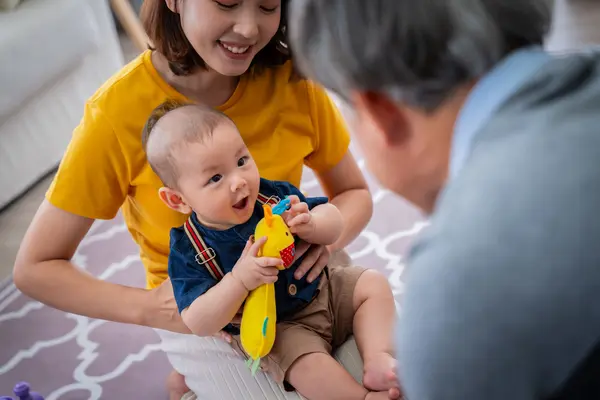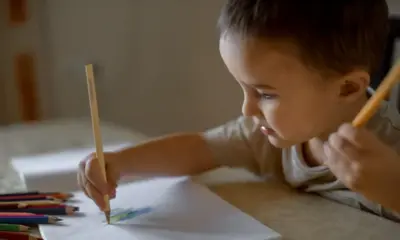Baby Development
When Do Babies Start Saying “Mama” and “Dada”?

When Do Babies Start Saying “Mama” and “Dada”? Age, Milestones, and Tips to Encourage Speech
Hearing your baby say their first words is an unforgettable moment for any parent. If you’re wondering, when do babies start saying “mama” and “dada”?, you’re not alone. This milestone marks an essential step in language development and emotional bonding. While some babies start babbling early, others may take more time, and several factors influence when they begin to say these meaningful words.
At What Age Do Babies Say “Mama” and “Dada”?
Babies typically begin babbling around three to four months old, experimenting with different sounds. However, most babies will say “mama” or “dada” intentionally between six to nine months of age. Some may start earlier, while others take a little longer. By 12 months, many babies can say these words with the correct meaning and may even recognize and call their parents by name.
“Mama” or “Dada”: Which Comes First?
While every baby is unique, many tend to say “mama” first because the “M” sound is easier to produce. Babies often make “mmm” sounds when gurgling, and as their vocal skills develop, they combine this with vowels to form “mama.” However, some may say “dada” first, especially if they hear that word more frequently in their environment.
Do Babies Mean It When They Say “Mama” and “Dada”?
At first, babies may say “mama” and “dada” without fully understanding the meaning. However, by 12 months, they typically associate these words with their parents. As their cognitive abilities develop, they learn to recognize names and associate words with specific people, making their speech more intentional.
How to Encourage Your Baby to Say “Mama” and “Dada”
If you’re eager to hear your baby say these words, here are some simple and fun ways to help them:
- Label objects and people: Point to yourself and say “mama” or “dada” to help them associate the word with the right person.
- Talk frequently: Engage your baby in conversations, respond to their coos, and use simple words repeatedly.
- Read books: Reading to your baby exposes them to new words and encourages speech development.
- Sing songs and rhymes: Repetitive songs with words like “mama” and “dada” make learning fun.
- Use a photo album: Show them pictures of their parents and say “mama” and “dada” to reinforce word association.
- Play peek-a-boo: This classic game helps babies practice speech and language in an interactive way.
When to Be Concerned About Speech Delay
Every baby develops at their own pace, but if your child does not say any words by 12 months or does not respond to sounds and conversations, it’s a good idea to consult a pediatrician. Speech delays can have various causes, and early intervention can help address any concerns.
Final Thoughts
Parents eagerly anticipate their baby’s first words, and while some may say “mama” or “dada” early, others may take a little more time. The key is to engage, talk, and encourage their language development in a playful and loving manner. If speech delays persist, seeking professional advice can provide reassurance and guidance.












